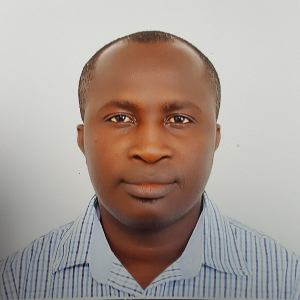Opinions of Thursday, 11 July 2024
Columnist: Nana Yaw Wi Asamoah Boadi
Your name and the potential disconnection from your African ancestral quantum DNA
It is so fascinating how the choice of foreign and European names for our children and ourselves has become like a spell or compulsion in the subconscious minds of most Africans. The situation has worsened in modern times, to the point that most young people are now shy about even identifying with their local and ancestral names.
Religion and its initiation mandate have fueled this colonial orientation, which is clearly at the root of this issue. These initiations mostly mandated the adoption of a foreign ancestor’s name, alienating the Africans from their roots, ancestral lineage, and African ancestral quantum DNA. It is heartbreaking that, upon returning from exile in the Seychelles in 1924, a mental manipulation through religious initiation altered Otumfo's name from Nana Osei Agyeman Prempeh II to King Edward Prempeh, accompanied by the title "Sir."
Cutting him completely from his ancestry and existential essence. Then,
adopting a foreign name became the new dawn. However, ancient wisdom and exoteric traditions’ insight on the power of naming and their link to resonating the individual’s existential essence through the ancestral lineage of the name coded to its existential being is the reason why many traditions change or adopt names to serve their conscious intentions.
This is a powerful tool, capable of influencing even your biological DNA
through quantum DNA, just as quantum physics manipulates physical properties. This also clarifies why authentic historical translations do not translate names from their original nature unless they conceal an ulterior motive. The names chosen upon coronation—Otumfo Osei Tutu II by the current Asante king, Agbogbomefia Togbe Afede XIV, and Yaa Naa Abubakari Mahama II—should pique your curiosity about the hidden power of naming.
Wake up and know your conscious self:
You are the Ancestor who changes everything in your lineage. This is the hope of your ancestors, many generations before your existence. We estimate that starting with your two parents, 4,094 ancestors must have lived for at least 400 years for you to be alive today and fulfil this purpose. These ancestors have experienced a wide range of professions, struggles, battles, sadness,
difficulties, happiness, love stories, broken hearts, hopes, aspirations, and rich experiences, all of which have contributed to preparing you for the essence of your existence. Your African Ancestral Quantum DNA stores these valuable orientational assets, and your traditional and ancestral names encode them.
You may possess the biological DNA of your birth line, but you could be disconnected from your African ancestral Quantum DNA as a result of the rejection of your African Ancestral name or a total adoption of a name that is alien to your African traditional Ancestry, in connection to the idea that our identities and experiences are intertwined with our ancestors and the collective
unconscious.
Name and Naming:
The common understanding of "name" and "naming" refers to their basic, common functions and uses in everyday life. People perceive a "name" as a word or a combination of words that distinguish one entity from another and facilitate communication. For example, calling someone "Pidana" or “Obrempong” allows others to recognise and address that particular individual directly (Igboin, 2014). "Naming" reflects the act of giving a name to someone or something.
providing a clear and recognisable label for identification and communication purposes. For instance, parents name their child shortly after birth to give the child an identity within their family and society (Zulu, 2017).
The Essence of Naming:
Names and naming someone go beyond the common understanding of simply identifying and labelling people (Igboin, 2014; Ephirim-Donkor, 2019). This is because names carry deeper cultural, social, personal, and spiritual significance. Many cultures choose names based on their meanings and the values they convey. They often reflect important events, characteristics, or aspirations. For instance, names can signify qualities such as bravery, wisdom, or beauty, reflecting the hopes and expectations placed on the individual.
They are often selected to honour ancestors or convey specific messages that sum up all the experiences within the ancestral lineage's quantum DNA. Additionally, traditional names label, code, and encode this quantum DNA, indicating familial connections and essence, linking individuals to their lineage and heritage, and fostering a sense of belonging and continuity within a family or community. Various traditions believe that names, given in ceremonies, carry spiritual or religious significance and influence an individual's destiny or character.
These names serve as surnames or family names, connecting individuals to their lineage and heritage. African cultures give a child's name based on spiritual guidance, believing it to reflect their path or destiny (Ephirim-Donkor, 2019). In essence, your name is a code that, when consistently pronounced by both yourself and others, connects you to your ancestral quantum DNA, which has stored all the necessary elements to fulfill your existential essence.
Names and Quantum DNA through Quantum Physics:
Quantum physics deals with the fundamental principles governing the behaviour of matter and energy at the smallest scales, such as particles and waves. Although quantum physics does not directly address names or their generational transmission, it draws intriguing metaphysical and theoretical connections, especially when examining DNA (deoxyribonucleic acid), a molecule present in all living organisms' cells that carries genetic instructions for growth, development, functioning, and reproduction (Bauer et al., 2017), and my concept of quantum "DNA."
Quantum entanglement, where particles become interconnected regardless of distance, can metaphorically represent the connection between individuals who share a name across generations. This "entanglement" suggests that a name maintains a persistent link to one’s ancestors, similar to how DNA carries genetic information through generations. This implies that ancestors' values and essence influence present and future generations, with names serving as
markers of this deep ancestral connection.
Similarly, the concept of quantum superposition, where particles exist in multiple states simultaneously, can symbolise how a name embodies the
cumulative experiences, traits, and histories of all its bearers, resulting in a rich, multifaceted identity encoded within what could be termed ‘Quantum DNA'—a term I have generated (Igboin, 2014; Ephirim-Donkor, 2019).
Additionally, the dual nature of particles exhibiting both wave-like and particle-like properties mirrors the dual aspects of names. Names act as concrete identifiers for individuals while also carrying intangible cultural, emotional, and historical resonances across time. This wave-like nature reflects how names propagate through cultural and Ancestral contexts, shaping the
identity of those who inherit them. Quantum decoherence, where quantum systems lose coherence through environmental interactions, parallels how names handed down through generations are influenced by changing cultural, social, and ancestral environments.
Yet, the core identity linked to a name can remain coherent, preserving tradition much like DNA preserves genetic continuity. We can apply the principles of quantum information, which suggest that information is fundamental to reality, to the concepts of names and Quantum DNA. As information carriers, names encode significant cultural, familial, and personal data, maintaining
essential information across generations and contributing to a shared collective identity. While there is no direct scientific link, quantum physics and the concept of quantum DNA provide rich metaphors for understanding the deep, interconnected nature of names across generations (Zulu, 2017; Nobles, 2012).
Existential essence:
Existential essence, in relation to fulfilling ancestral obligations, is a complex concept rooted in African and Balinese traditions. Among the Akan, Ewes, and Northern Tribes, individuals are believed to embody the essence of deities, which guides their life purpose (Ficek, 2019). This connection to ancestral origins provides a sense of identity and responsibility within the community (Neubauer, 1983). Balinese culture views human existence as a transitional period for ancestral souls, where individuals act as agents to maintain social structures and fulfil communal duties (Filloux, 1991).
Understanding mortality and one's role in the ancestral line can lead to an existential awakening, allowing for personal growth and a deeper understanding of one's place in the world (Більчук & Більчук, 2019). These perspectives emphasise the importance of recognising one's spiritual and ancestral connections in shaping personal naming identity and fulfilling societal obligations.
Pronouncing your name:
Constantly pronouncing your ancestral name, as is also the case with mantras, produces sound waves that travel through a medium. These waves have the potential to cause localized physical effects such as vibrations, and they may also influence electromagnetic waves or magnetic fields through codes that the universe understands due to your African ancestral quantum DNA.
Psychologically, hearing one’s name repeatedly can trigger heightened attention and emotional responses, impacting self-esteem and stress levels based on associations with positive or negative contexts. The person in question not only experiences these effects, but their ancestral lineage also stores them. Metaphysical practices suggest that names carry vibrational energies that
influence individuals, prompting exploration in quantum physics for scientific validation of claims regarding magnetic waves or broader electromagnetic effects. Despite the profound psychological and cultural significance of names, their purported influence on physical phenomena like magnetic waves remains a mystery, which quantum DNA may explain.
Disorientation and Reorientation of Existential Essence:
Existential disorientation, also known as disoriented existential essence, refers to a state of confusion and lack of direction regarding one's identity and purpose in life. This phenomenon can be exacerbated by a disconnection from one's ancestral heritage, particularly when individuals adopt foreign names that are not aligned with their cultural and familial roots. In the context of African Quantum DNA, names carry deep cultural, spiritual, and historical
significance, acting as links to one's lineage and heritage (Igboin, 2014; Ephirim-Donkor, 2019).
When individuals choose names outside their ancestral line, they may inadvertently sever these connections, leading to feelings of alienation and a loss of identity. On the other hand, reorientation involves realigning with one’s African ancestral quantum DNA and rediscovering and embracing one's cultural heritage to regain a sense of purpose and belonging. This process
can be achieved through these various means:
Reclaiming Traditional Names: Adopting or reclaiming names that reflect one's ancestral heritage can restore connections to one's lineage and reinforce a sense of identity. Traditional names often carry significant meanings, embodying the values, aspirations, and history of the community. By reclaiming these names, individuals can honour their ancestors and reaffirm their place within their cultural narrative.
Cultural Education: Learning about and engaging with one's cultural history, traditions, and values can provide a deeper understanding of one's roots and the roles expected by one's ancestors. This education can involve studying historical texts, participating in cultural festivals, and learning traditional crafts and languages. Such engagement helps individuals appreciate the richness of their heritage and the wisdom passed down through generations. A national day for traditional worship and ancestral veneration is necessary to assist citizens in this direction.
Spiritual practices: Participating in traditional spiritual practices and ceremonies can help individuals reconnect with their ancestral heritage and the spiritual dimensions of their identity. These practices might include the pouring of libations, rituals, prayers, and ceremonies that have been part of the culture for centuries. Through these spiritual activities, individuals can
experience a profound sense of connection to their ancestors and the divine, grounding them in their cultural identity.
Search for your ancestors: As far as you can, look for the names and stories of your ancestors, particularly those you were named after, those who performed great deeds when they were alive, those who showed you love, those you frequently see in your dreams, and those who were traditional priests, herbalists, shamans, etc. List their names, show them respect, and pray
through them. They are not demons; they love us and are waiting for us to connect.
Community Involvement: Building relationships within one's cultural community can foster a sense of belonging and support, helping individuals feel connected to their heritage and collective identity. Involvement in community activities, such as local events, volunteer work, and cultural organisations, creates opportunities to bond with others who share similar backgrounds and values. This communal engagement strengthens social ties and reinforces a
shared sense of purpose.
Through these methods, individuals can reorient themselves, finding their true purpose by aligning with the cultural and ancestral values embedded in their Quantum DNA. This alignment not only aids in personal fulfilment but also strengthens the continuity and vitality of their cultural heritage. By embracing their cultural roots, individuals can navigate the complexities of modern life with a stronger sense of identity and purpose, contributing to the preservation and celebration of their ancestral legacy.
Don’t walk into an African body with an alien mind.
Our Ancestors have heavy hearts !!!













